As the saying goes, different culinary cultures are just a reflection of life at the dining table. While most of us enjoy a rich and delicate dish, food as simple as a bowl of hot steamed rice can make us feel satisfied and happy when it is part of our memory with family or friends. Many faculty members and students at the University of Macau (UM) enjoy cooking. While their culinary skills may vary, they have all found an emotional connection to the food they prepare.
An Amateur Cook Who Rolls His Own Noodles
Xiang Yutao, head of the Department of Public Health and Medicinal Administration, and his wife Lily Li are both wonderful amateur cooks of Chinese dishes. Because of this, Prof Lau Yun Tung, college master of Chao Kuang Piu College, and his wife Monica Yu, who also enjoy cooking, encouraged Prof Xiang to demonstrate his cooking skills at the college kitchen. Prof Xiang was born in Beijing. After obtaining his bachelor’s degree in clinical medicine and master’s degree in mental health in mainland China, he went on to pursue a PhD in psychiatry at the Chinese University of Hong Kong and receive post-doctoral training at the School of Medicine of the University of Maryland. While abroad, whenever he missed home, he would cook his favourite Beijing dishes, such as Zha Jiang Mian (fried sauce noodles) and shredded potato with vinegar, to ease his homesickness. After arriving in Macao, Prof Xiang fell in love with the local cuisine and learned how to prepare Macanese dishes.
Zha Jiang Mian is a dish from Prof Xiang’ s childhood and the taste always brings him back to the early years of his life. ‘When I was seven years old, I made a bowl of Zha Jiang Mian and brought it to my mother while she was working. She felt very touched by it,’ says Prof Xiang. After years of practice, Prof Xiang is now able to roll noodles that are as smooth and creamy as those made by a professional chef.
During holidays and festive celebrations, he likes to invite his students to his home to cook with him. ‘I always tell my students that cooking is just like research. If you are passionate about it, you will do it well,’ says Prof Xiang, who is good at cooking authentic dishes that are deceptively simple. ‘Shredded potato with vinegar is a seemingly simple dish, but it requires good cutting skills and the right amount of heat. I often use it as a metaphor for the fact that behind every seemingly ordinary life there is a very exciting story.’
An Avenue for Human Connection
Prof Lau Yun Tung, college master of Chao Kuang Piu College, has had a fascinating experience studying in the United States and working at NASA. After obtaining his PhD in physics from the Massachusetts Institute of Technology, he worked as a researcher at the University of Maryland and NASA for nearly ten years. He returned to Macao in 2017 and became a college master at UM.
At UM, Prof Lau saw how much his students enjoyed cooking, so he decided to enhance the college kitchen and rename it into ‘Master Kitchen’. The kitchen has garnered a campus reputation as its student chefs have won the championship of the inter-college culinary art competition three years in a row. ‘I was most impressed by a dish named “123 Red and Green Lights” in the competition. It was created by one of our students using ingredients in red, yellow and green colours. The dish reflects the college’s emphasis on creativity and diversity,’ says Prof Lau.
Prof Lau always cooked alone during the early days of his stay in the United States: ‘I did not have much money to eat outside as an international student. At that time, what I missed the most were the family meals in Macao, especially the red bean cake, sticky rice cake, and Cantonese sponge cake made by the elderly family members. I also missed the cafés in the Three Lamps District of Macao,’ he says.
His one-man kitchen began to change after he met his wife Monica. ‘Monica particularly cares about healthy eating and she is a great cook of Western dishes. Today, we emphasise on the ingredients and cooking methods in everything we cook,’ says Prof Lau. ‘The college promotes a culture of healthy living, and in the past few years we have been offering cooking classes to foster healthy eating habits in our students. With students coming from different countries and regions, food has also become a window for us to learn about each other’s cultures.’
Monica says that she once made a quiche for a friend who worked as a chef at a Michelin-starred restaurant: ‘My friend loved the quiche and ate six slices. I think I passed the test.’ With a great passion for cooking, she has offered at the college more than 50 cooking classes for dishes of different cuisines, such as Chinese, French, Portuguese, Italian, Spanish, Japanese, and Mediterranean. The classes were very well received, with over 400 participants. ‘It is a joy to see a student go from not knowing how to cook to being able to cook and share the food with his or her family,’ says Monica.
Before our interview, Monica invited students to join the video shoot of the cooking session. She said: ‘I will use this opportunity to teach students how to make quiche and salad. I will also introduce them to healthy food ingredients.’
The three participating students, Zoey Zhou, Kok Son Ian, and Helen Cheong, had little experience in cooking but put a lot of effort into the session. ‘What impressed us the most was Monica’s detailed explanation of the origin of the ingredients. The sauces, olive oil, cheese, peach, salad and eggs she used were all carefully selected and are the best she has tasted from years of experience,’ says Cheong. ‘She is very knowledgeable about nutrition facts on food labels. She is also very strict about the food preparation process and required us to clean up after each process to avoid making a mess in the kitchen. So we also learned how to manage a kitchen.’
Monica believes that food is an avenue for human connection. ‘Even a simple congee with bean curd will taste wonderful if you are sharing it with your family or friends,’ she says.
Borscht as a Metaphor for College Life
Many UM students have a passion for cooking. The Culinary Art Society of the UM Students’ Union has around 300 members from different faculties and colleges. William Cheong, honorary president of the society and a fourth-year student in the Department of Chinese Language and Literature and Cheong Kun Lun College, says the society aims to foster friendships among students through interactions during the cooking process.
Cheong joined the society in his first year and was elected vice president in his third year. He organises weekly cooking events and always tries to introduce new dishes. In the beginning, his cooking skills were mediocre and he made many failed dishes. After a few years of experimentation, he is now able to cook dishes that suit the palate of most of his fellow students. For our interview, he prepared three dishes, namely grilled teriyaki chicken, spaghetti Bolognese, and chocolate whipped cream. ‘I only spent about MOP 100 on the ingredients of these three dishes, but the portions are big enough for six people,’ says Cheong. ‘They are very easy to prepare and only take about 30 minutes.’
‘If I hadn’t joined the society, I would have been a student without achieving much in college. Over the past three years, I organised many events, developed my leadership and life skills, and prepared countless dishes that have enriched my college experience at UM,’ he adds.
Chiang Hsun, an author and paintor, once said that humans will taste many different kinds of food throughout our lives. Those tastes will remain in our memory and remind us of life experiences.
When asked to name a single dish that describes his four years at UM, Cheong chose the borscht soup he once made. ‘Borscht can represent the life of a university student because of its simplicity. It’s also sweet and sour, without bitterness.
Source: My UM ISSUE 119
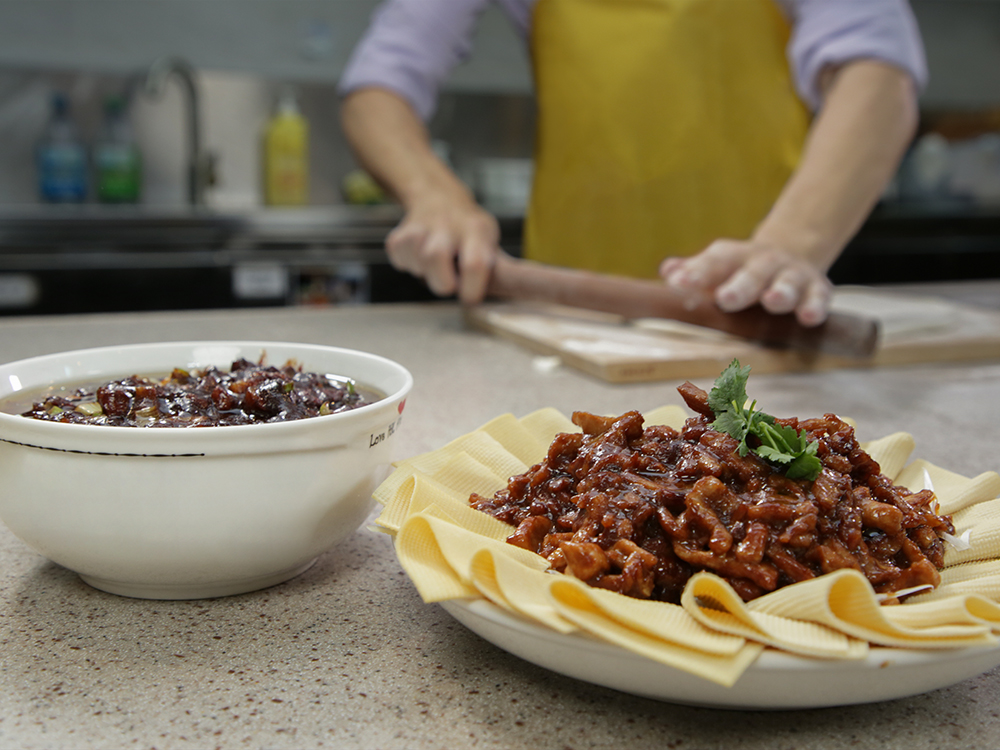
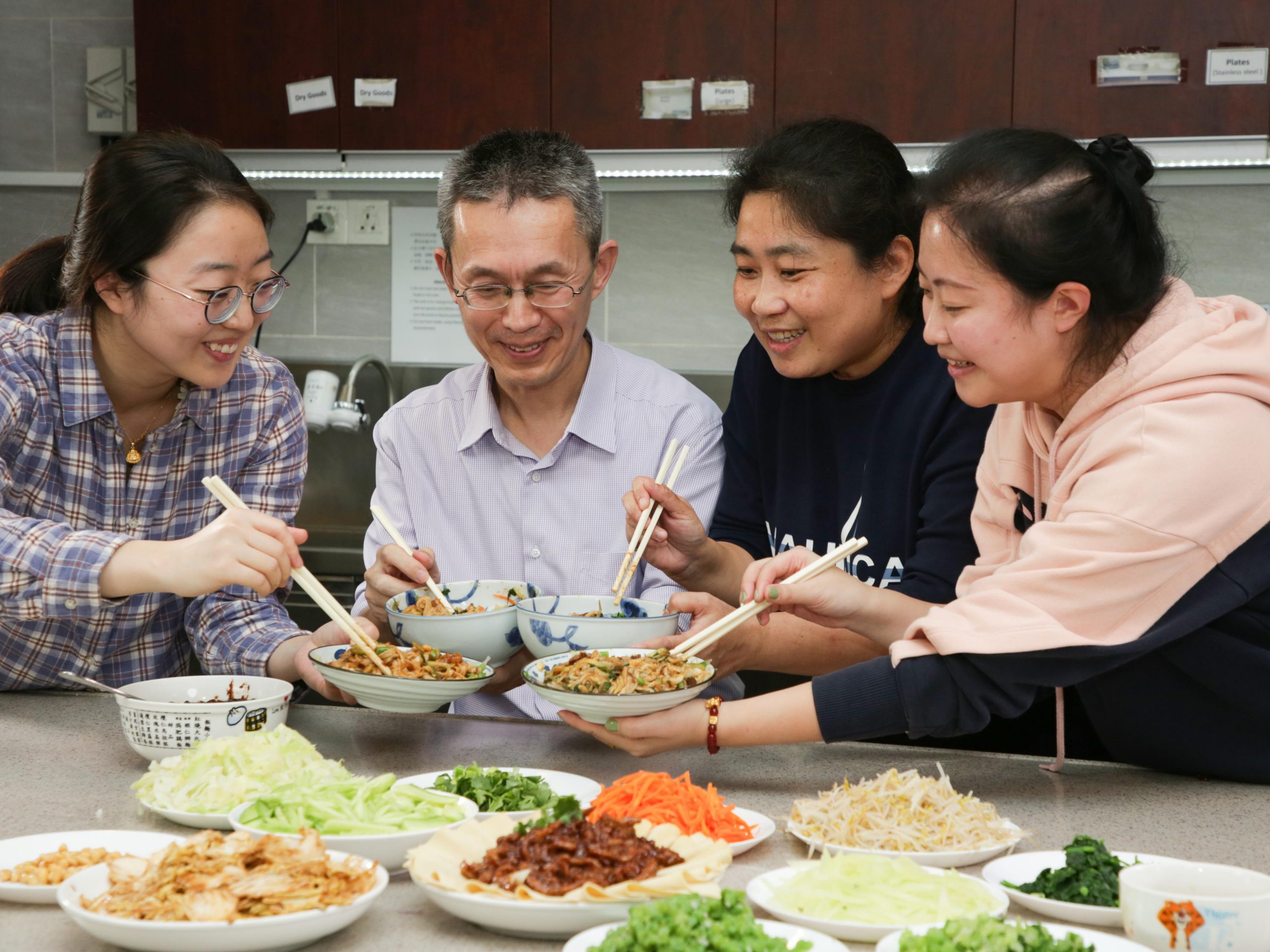
Prof Xiang Yutao, Lily Li (2nd from right), and students
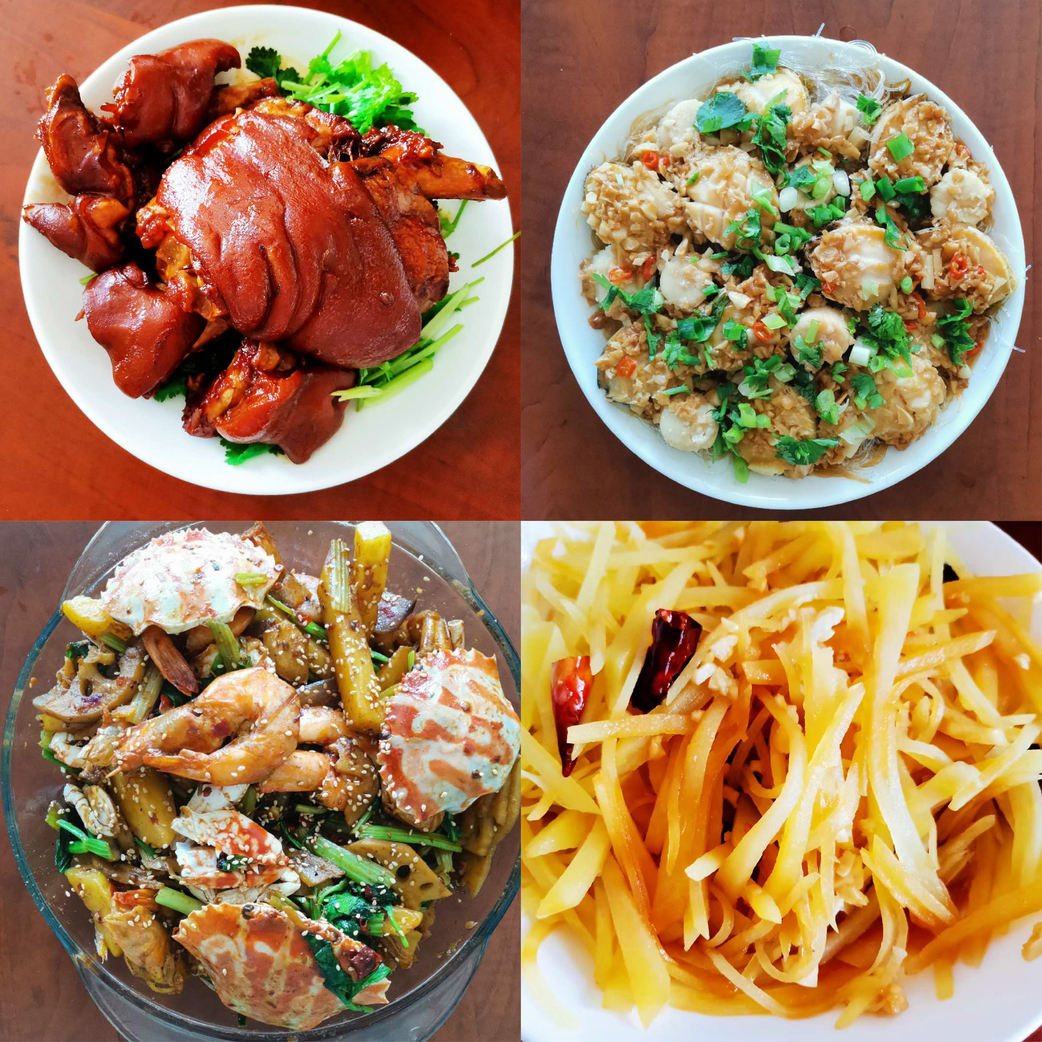
Prof Xiang Yutao can cook a variety of dishes
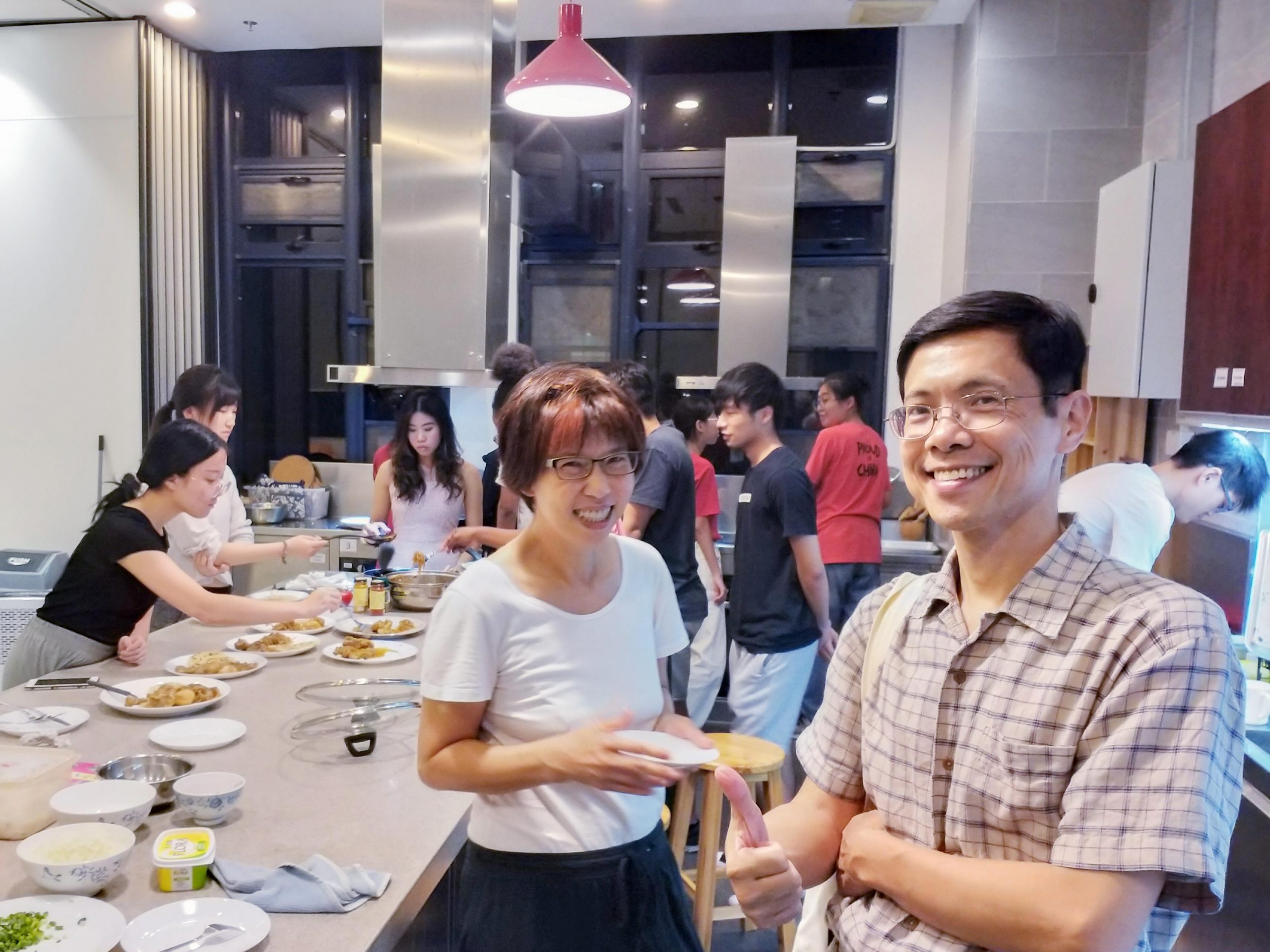
Prof Lau Yun Tung and Monica Yu at Master Kitchen
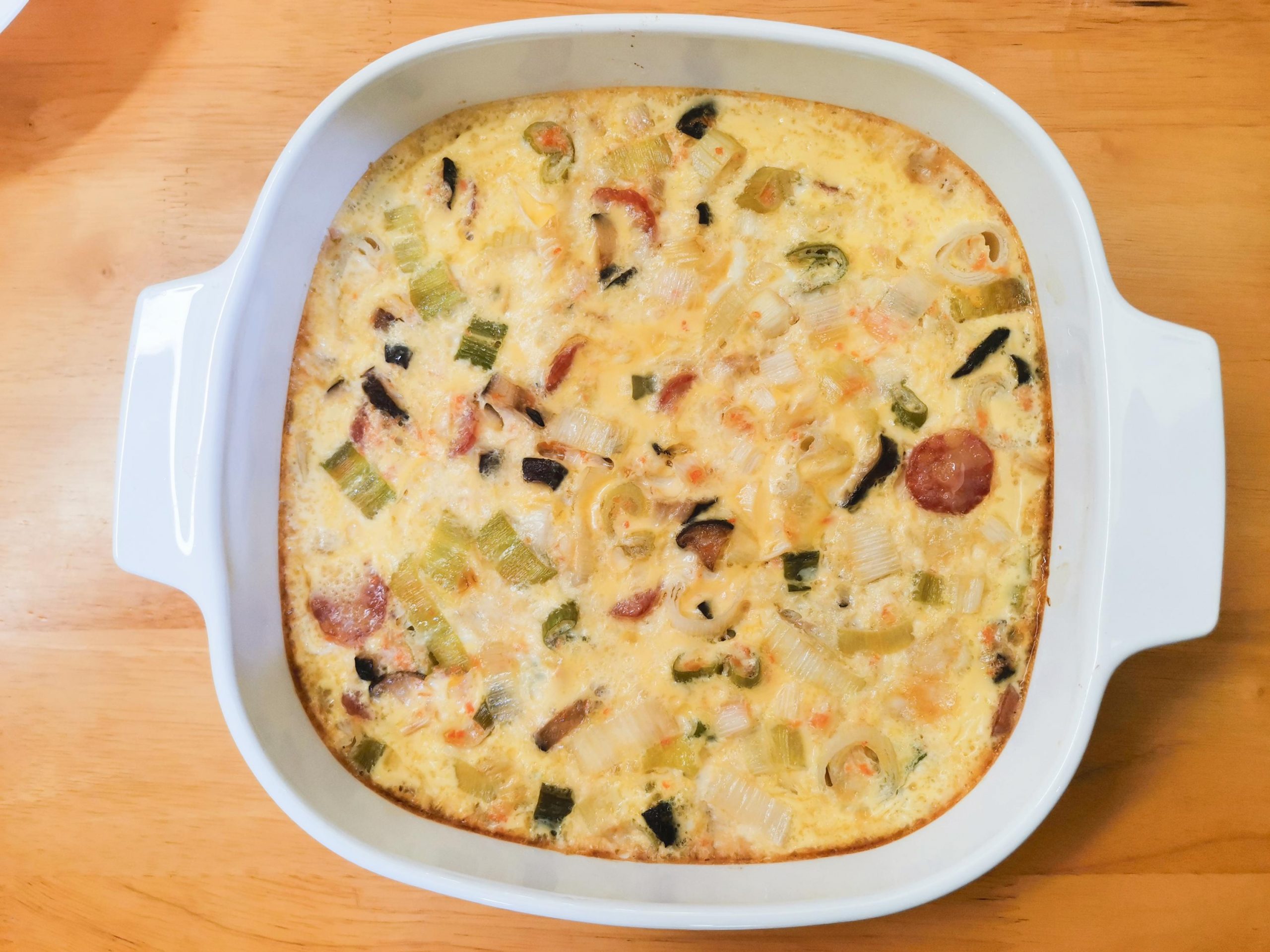
A quiche made by Monica Yu and students
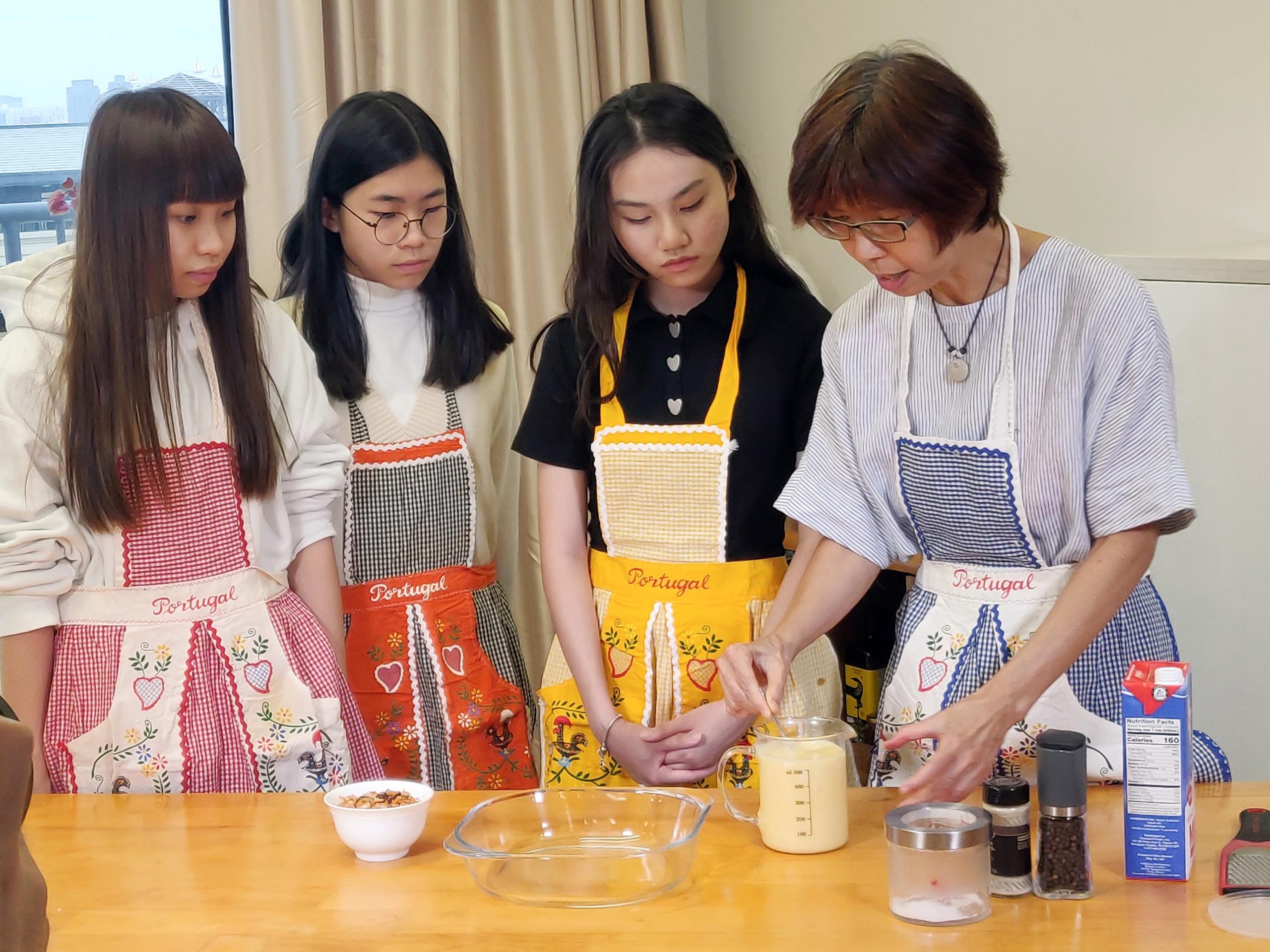
(From right) Monica Yu teaches Zoey Zhou, Kok Son Ian, and Helen Cheong how to make a quiche
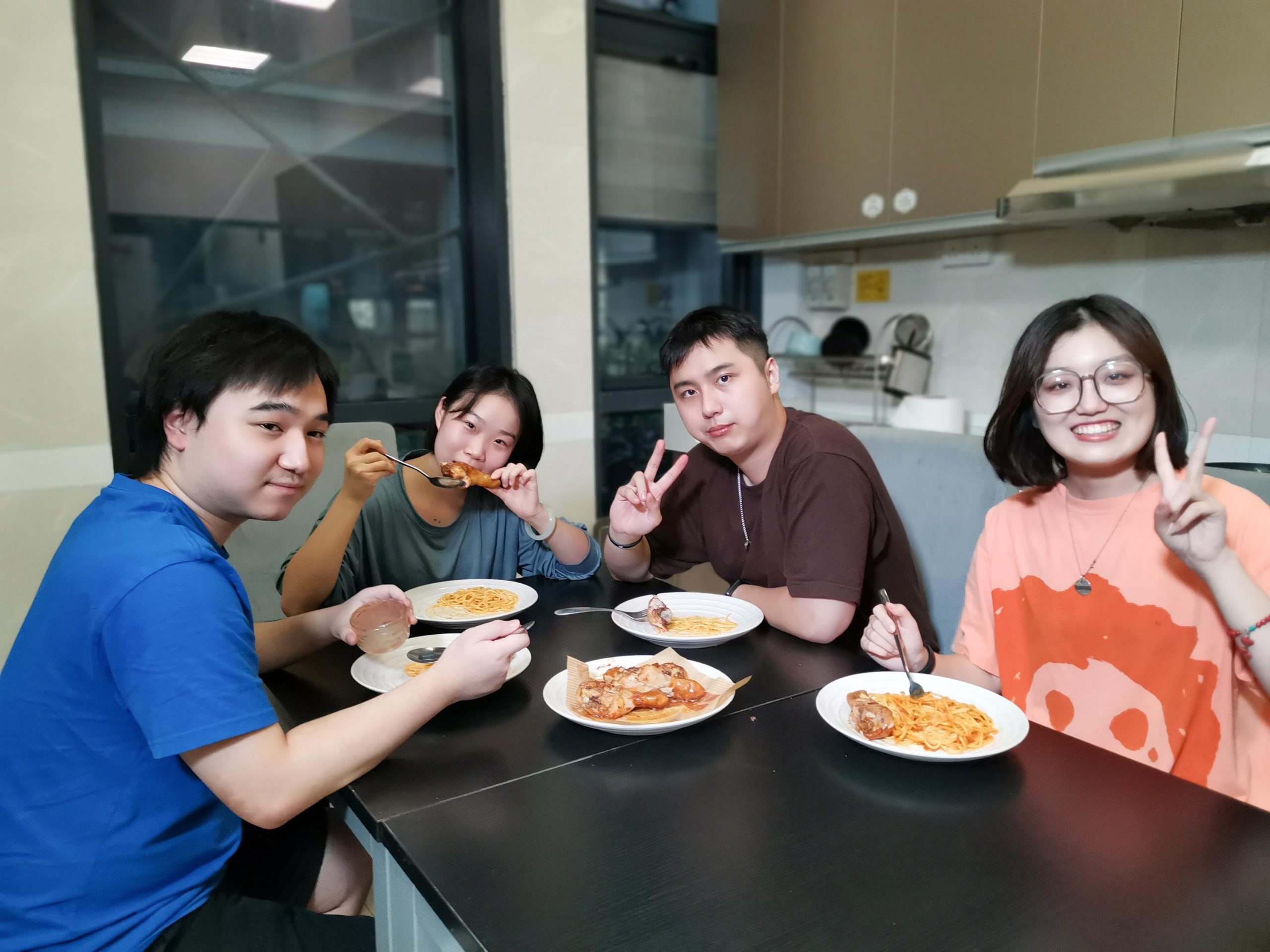
William Cheong and members of the Culinary Art Society taste the food he made
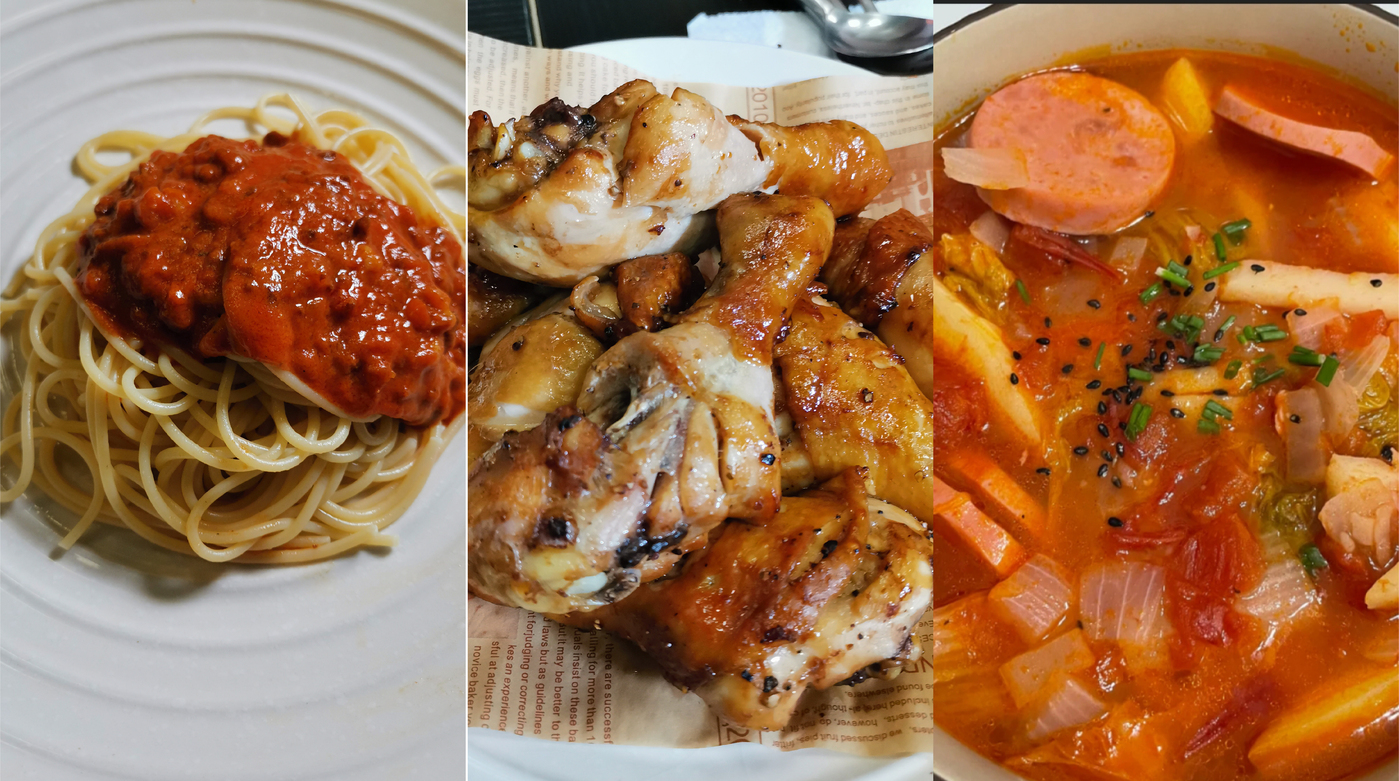
The spaghetti Bolognese, grilled teriyaki chicken, and Borscht made by William Cheong
